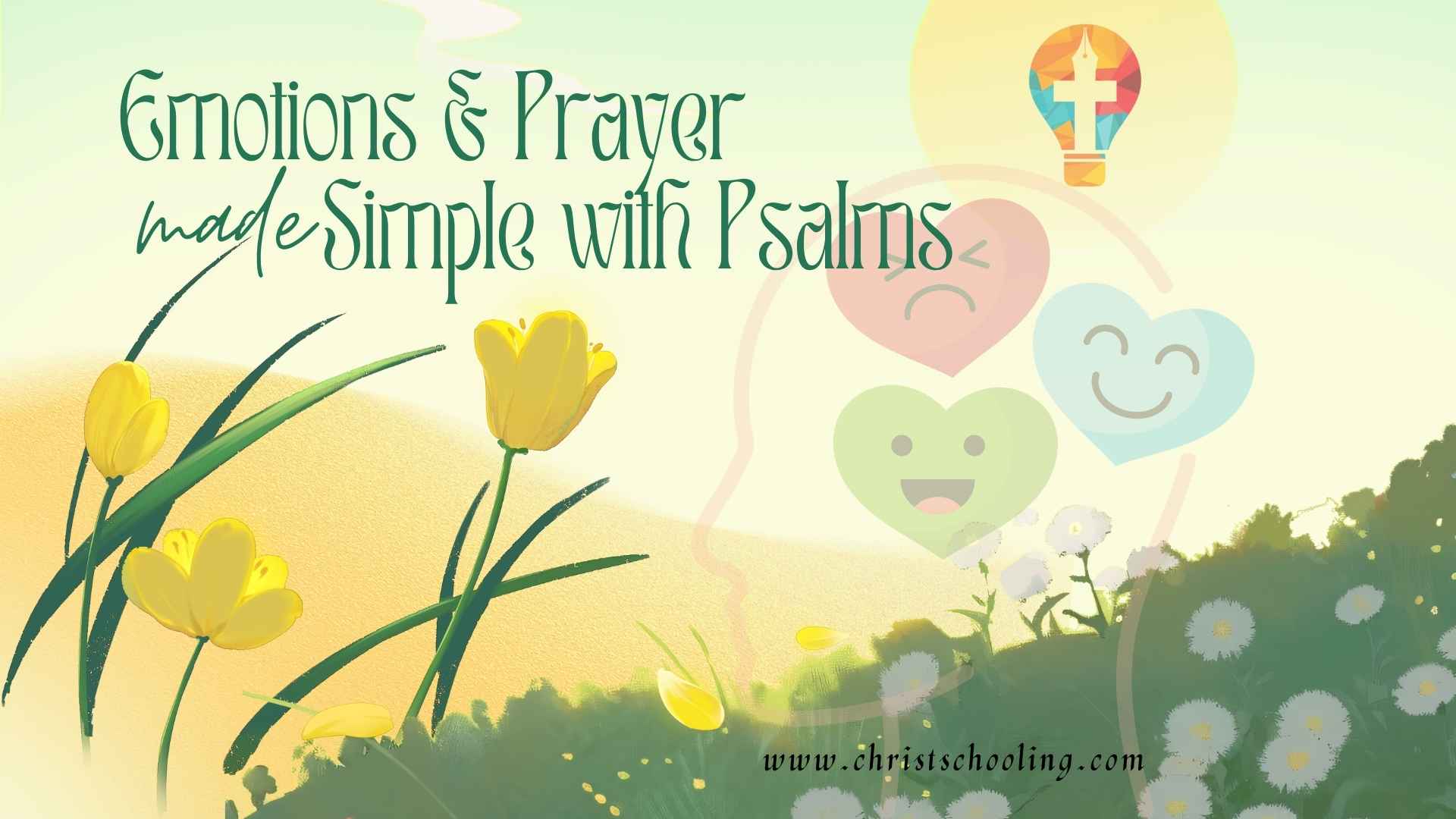🕊️Children are full of emotions. One moment they’re laughing with joy, and the next they may be upset or overwhelmed.
As Christian parents, we are called not just to correct behavior, but to shepherd hearts—and that includes guiding our children in understanding and expressing their emotions in a Christ-honoring way.
“When I am afraid, I put my trust in You.”— Psalm 56:3
The Book of Psalms, God’s divinely inspired songbook, is one of the richest resources for doing exactly that. It doesn’t shy away from human emotion—instead, it invites us to bring every feeling to the throne of grace.
The Psalms can help your child not only understand what they feel, but also learn how to turn those feelings into prayer and trust in God.
📖 The Psalms: A Safe Place for Big Emotions
From David’s cries for help in the cave to his songs of victory, the Psalms reveal the full spectrum of human emotion. Joy, fear, sorrow, confusion, anger, hope, praise—it’s all there.
And this is deeply important: the Psalms show children (and adults!) that it’s okay to have strong emotions. What matters is where we go with them.
In the Psalms, we are taught to bring our hearts—raw, real, and unfiltered—before a holy and loving God.
“Pour out your heart before Him; God is a refuge for us.”— Psalm 62:8
❤️ Why Emotions Matter in Discipleship
In our culture, emotions are often either idolized or suppressed. But the Bible teaches a third way: emotions must be discerned and directed.
As Christian homeschoolers, we have the opportunity to give our children a biblical framework for feeling deeply while thinking biblically.
When a child is taught to name and understand their emotions, they begin to develop emotional maturity. And when those emotions are brought to God in prayer—modeled in the Psalms—they develop spiritual intimacy with their Father in Heaven.
“Be angry, and do not sin; ponder in your own hearts on your beds, and be silent.”
— Psalm 4:4
🙏 Teaching Prayer Through the Psalms
The Psalms aren’t just emotional—they’re deeply prayerful. Every Psalm is a conversation between the psalmist and God.
Some are cries for help.
Some are confessions of sin.
Others are songs of celebration and trust.
All are honest.
Teaching your child to pray the Psalms is teaching them that prayer is not about perfect words—it’s about bringing their whole heart before a perfect God.
Even Jesus prayed with the Psalms—on the cross, He cried out,
“My God, My God, why have You forsaken Me?” (Psalm 22:1)
🛠️ Practical Ways to Use Psalms at Home
Here are some simple and engaging ways to help your children connect with the Psalms:
1. Emotion Journaling with Psalm Verses
Ask your child how they’re feeling today. Then help them find a Psalm that expresses a similar emotion. Let them draw or write their thoughts around that verse.
2. Act It Out
Read a Psalm together and act out the emotion behind it. Let children use their imagination—this makes Scripture memorable!
3. Family Prayer Time with a Psalm
Choose a Psalm and take turns praying one line each. Discuss what it means and how it applies to their day.
4. Psalm Memorization
Start with Psalm 23 or Psalm 100. These Psalms are full of comforting truth and are easy for children to memorize with rhythm and repetition.
5. Write Your Own Psalm
Encourage your child to write a short Psalm to God using phrases like “I feel…”, “God, You are…”, and “Help me to…”.
📚 Psalms for Common Emotions
Here’s a helpful list of Psalms to teach your children that every emotion can be brought to God:
| Emotion | Psalm | Theme |
|---|---|---|
| Fear | Psalm 56 | Trust in God when afraid |
| Sadness | Psalm 42 | Longing and hope in despair |
| Joy | Psalm 100 | Praising God joyfully |
| Anger | Psalm 4 | Bringing anger to God |
| Gratitude | Psalm 103 | Remembering God’s goodness |
| Anxiety | Psalm 94:19 | Comfort from the Lord |
🌱 A Legacy of Honest Prayer
When children learn to process their emotions through the Psalms, they’re being equipped with a lifelong tool: Scripture-rooted prayer.
They begin to see that God cares not just about what they do, but how they feel—and how they respond in faith.
This builds a faith that is not robotic or ritualistic, but relational. It teaches them that God is their refuge in every season and their song in every circumstance.
🧡 Final Encouragement to Parents
You don’t need to have all the answers to your child’s emotions. Your role is to gently lead them to the One who does.
Use the Psalms not just as a lesson, but as a lifestyle—where every emotion becomes a moment of worship and every tear a conversation with God.
“The Lord is near to the brokenhearted and saves the crushed in spirit.”
— Psalm 34:18
Try reading one Psalm a day with your child this week. After reading, simply ask:
“What do you think the psalmist is feeling?”
“What would you like to say to God today?”
Let God’s Word be the guide, and let the Holy Spirit do the shaping.
